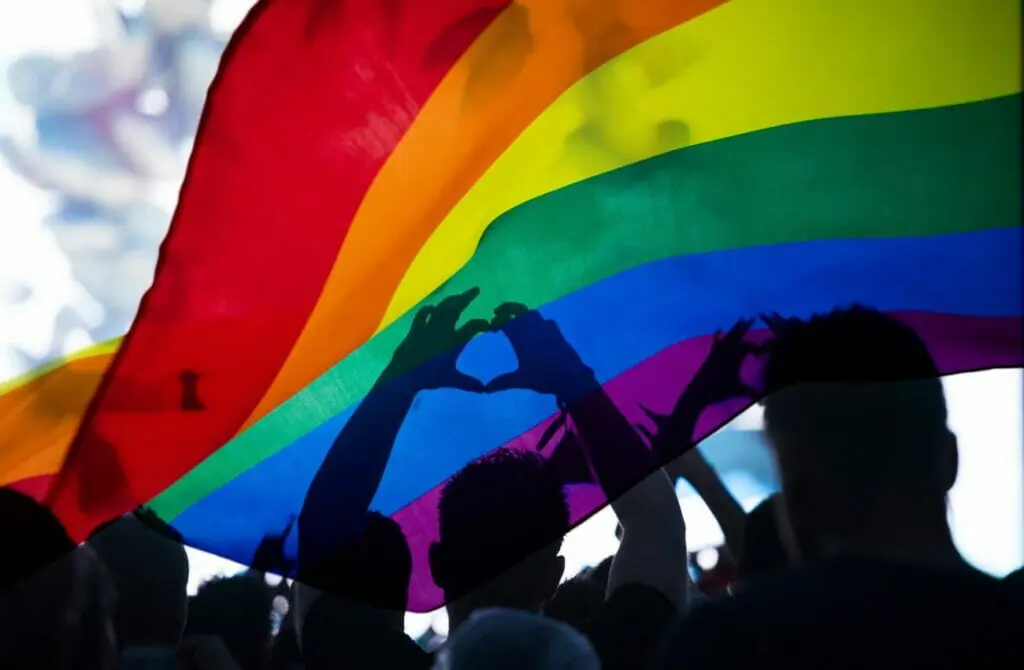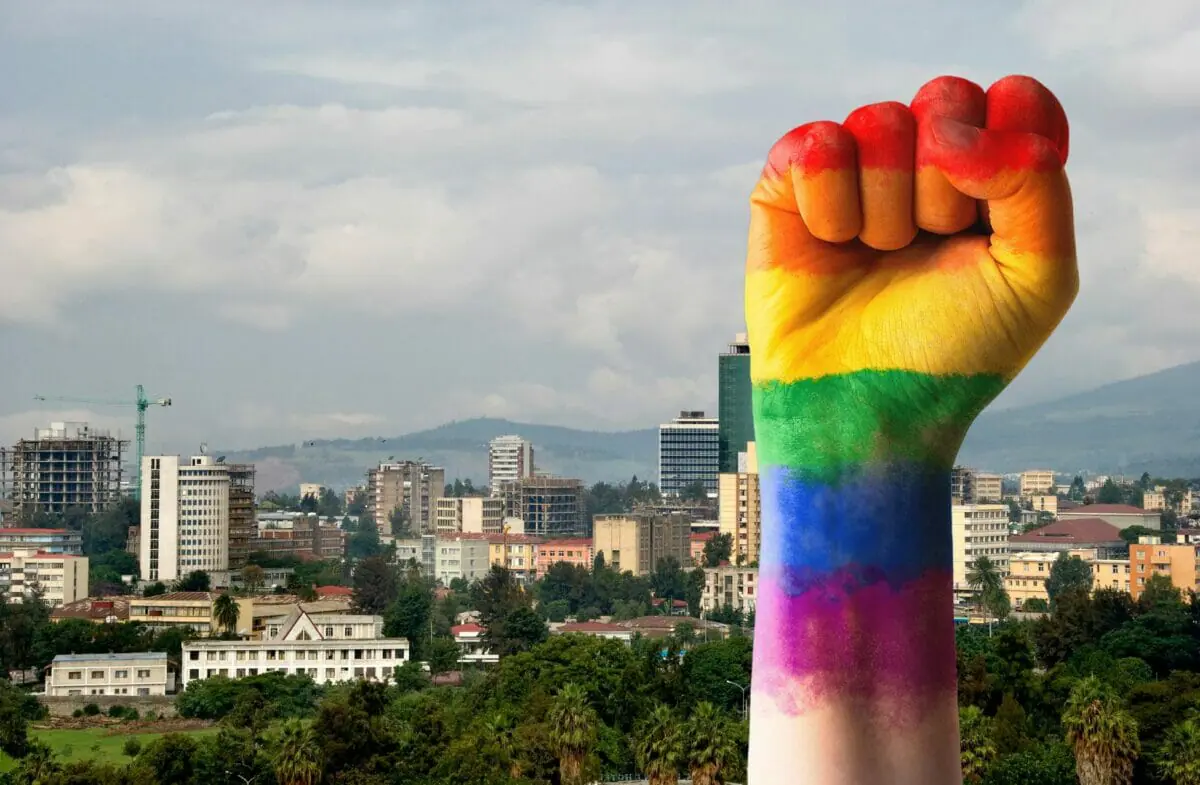LGBT rights in Ethiopia have been a pressing concern for both locals and tourists alike. Lesbian, gay, bisexual, and transgender (LGBT) individuals face legal challenges in the country, with both male and female same-sex sexual activity being illegal.
Due to these restrictions, discrimination and abuse against the LGBT community are quite prevalent in Ethiopia. Although the situation remains difficult, it is important for travelers to stay informed, as laws and policies may evolve over time.
While LGBT tourists may face fewer challenges compared to local residents, it is still crucial for them to remain cautious and vigilant when visiting Ethiopia. Staying aware of current laws, social norms, and the regional atmosphere can help ensure a safer experience. Additionally, connecting with local or international LGBT advocacy groups can be beneficial, as they often provide valuable information and support.
One should always keep in mind that the situation in any country can change rapidly, making it essential to seek up-to-date information before traveling. By staying well-informed and prepared, both local LGBT individuals and tourists can navigate the challenges presented by Ethiopia’s current stance on LGBT rights. It is hoped that, over time, progress will be made towards a more inclusive and accepting society for everyone.
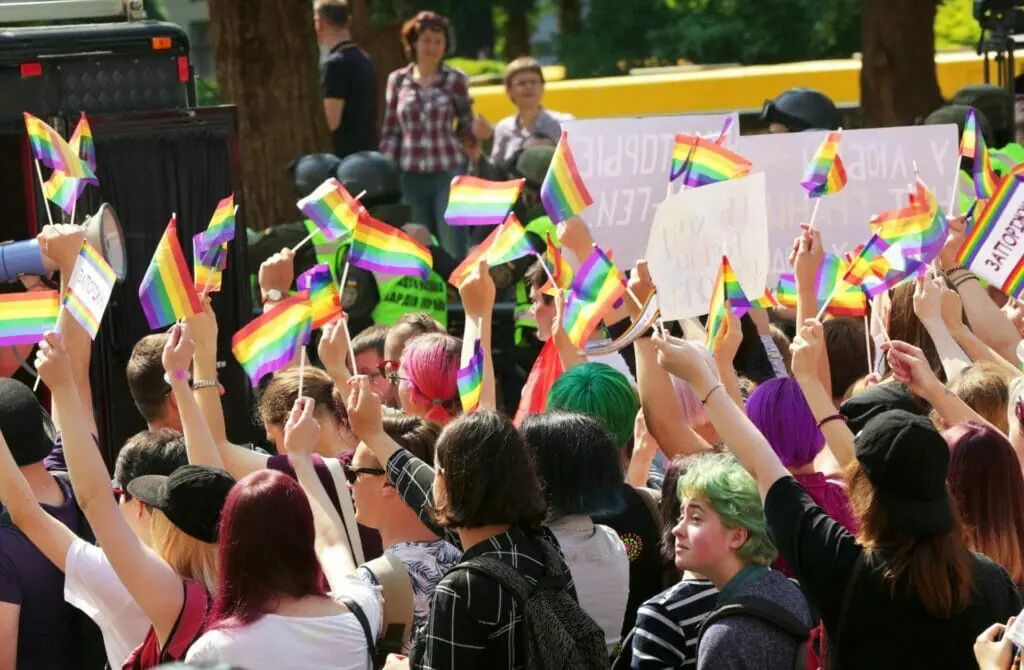

History Of LGBT Rights In Ethiopia
LGBT rights in Ethiopia have been a challenging subject throughout history. Despite the country’s rich and diverse cultural heritage, the government and society maintain a conservative approach towards homosexuality. Same-sex sexual activity is still prohibited under the Criminal Code of 2004, which criminalizes “homosexual or indecent acts.”
Ethiopia’s laws make a clear distinction between the treatment of its citizens and tourists. While locals continue to face widespread homo- and transphobia, tourists are often shielded from these harsh realities. However, even as a tourist, caution must always be exercised, as the situation can change rapidly, and bad actors may be present in any country. It is essential to remain vigilant and seek current advice before traveling.
In recent years, a few organizations have surfaced to advocate for LGBT rights and support the community in Ethiopia. These groups have been working tirelessly to create awareness, lobby for policy changes, and provide safe spaces for the community.
In terms of protection for the LGBT community, it would be beneficial to see the introduction of anti-discrimination laws and public education campaigns. This would not only help local Ethiopians but also any LGBTQ+ tourists who may be visiting the country.
As you navigate this exciting, beautiful country, remember that the situation regarding LGBT rights can change fast, and information may be outdated. We urge you to stay informed and actively engage with the leading advocacy groups in Ethiopia. They are diligently committed to improving the lives of their fellow citizens and making Ethiopia a more inclusive and equal place for everyone.
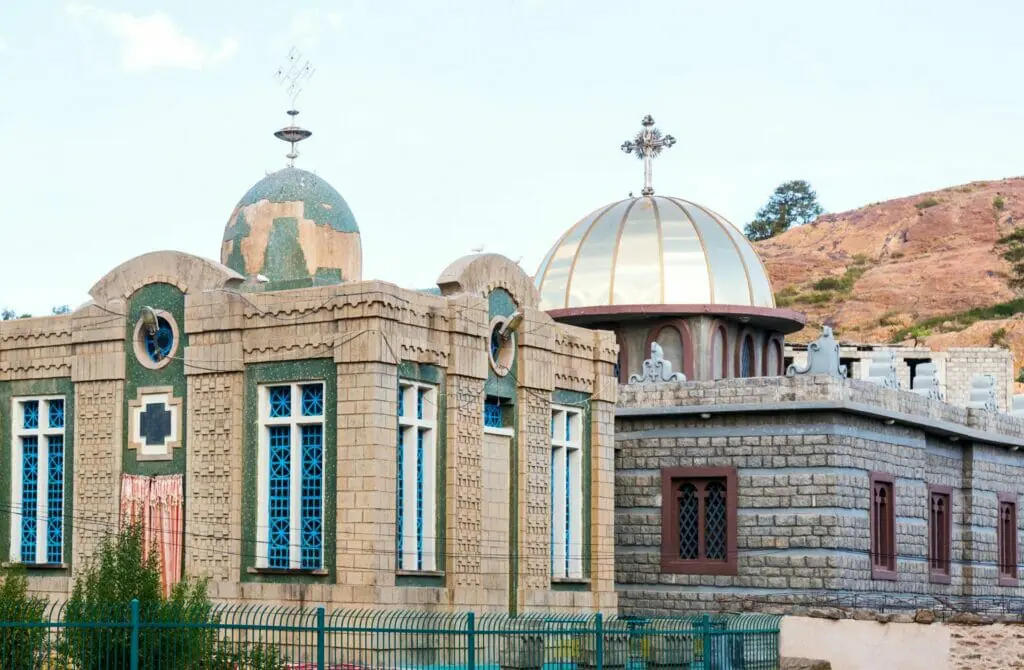
The LGBT Legal Situation In Ethiopia
LGBT rights in Ethiopia face significant challenges. Both male and female same-sex sexual activity is illegal in the country, and there are reports of high levels of discrimination and abuse against LGBT people. Unfortunately, this affects both local residents and international tourists.
It is essential for visitors to understand that homosexuality is punishable by imprisonment in Ethiopia. Although there may not be many convictions, societal stigma and inaccessibility of court documents could lead to underreporting. The LGBT community must remain vigilant and cautious, as situations can change quickly, and information might become outdated.
While in Ethiopia, LGBT individuals should take the necessary steps to protect themselves. This includes staying discreet about their sexual orientation and gender identity and avoiding public displays of affection. It would be wise to seek current advice before traveling to ensure that they have the most up-to-date information on the local LGBT rights situation.
Many LGBT advocacy groups are working to improve the situation and provide resources for the community in Ethiopia. These organizations can be helpful for both locals and tourists seeking support and guidance.
Remember, situations can change fast, and bad actors exist in every country. Always remain vigilant and stay informed about the legal situation regarding LGBT rights in Ethiopia. Keep this information in mind to ensure a safe and enjoyable trip.
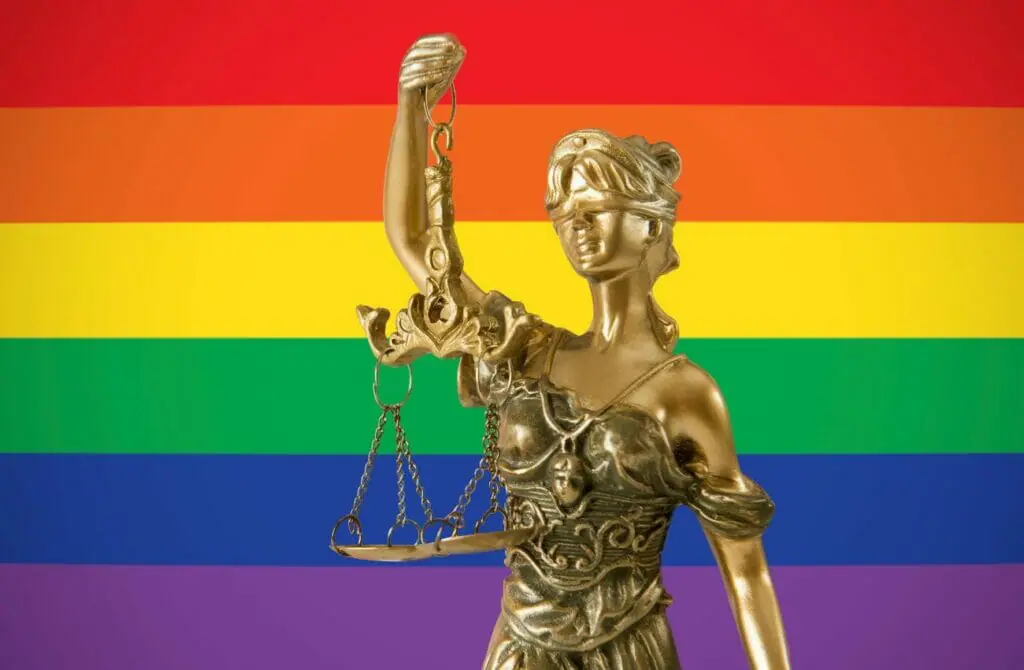

The LGBT Social Situation In Ethiopia
In Ethiopia, the LGBT community faces significant challenges due to the illegality of homosexuality and lack of protection for their rights. Locals bear the brunt of these restrictions, but tourists visiting the country should also be aware of the laws and societal attitudes they may encounter.
Members of the Ethiopian LGBTQ+ community report experiencing online harassment and physical attacks. Social media platforms, such as TikTok, have been cited as contributors to the incitement of these incidents. While the Constitution guarantees certain human rights for all Ethiopians, there are no specific protections in place for the LGBT community in areas like employment or housing discrimination.
For tourists visiting Ethiopia, it is essential to remain vigilant and cautious, as situations can change rapidly, and there may be bad actors targeting the LGBTQ+ community. Information may be out of date; therefore, seeking current advice before traveling is always recommended. In case of any concern or need for support, it is helpful to connect with local LGBTQ+ advocacy groups that can offer relevant guidance and assistance.
Remember to always err on the side of caution and be aware of your surroundings, as the social situation for the LGBT community in Ethiopia is precarious. By staying informed, proactive, and cautious, you can help contribute to a safer environment for everyone in the country.
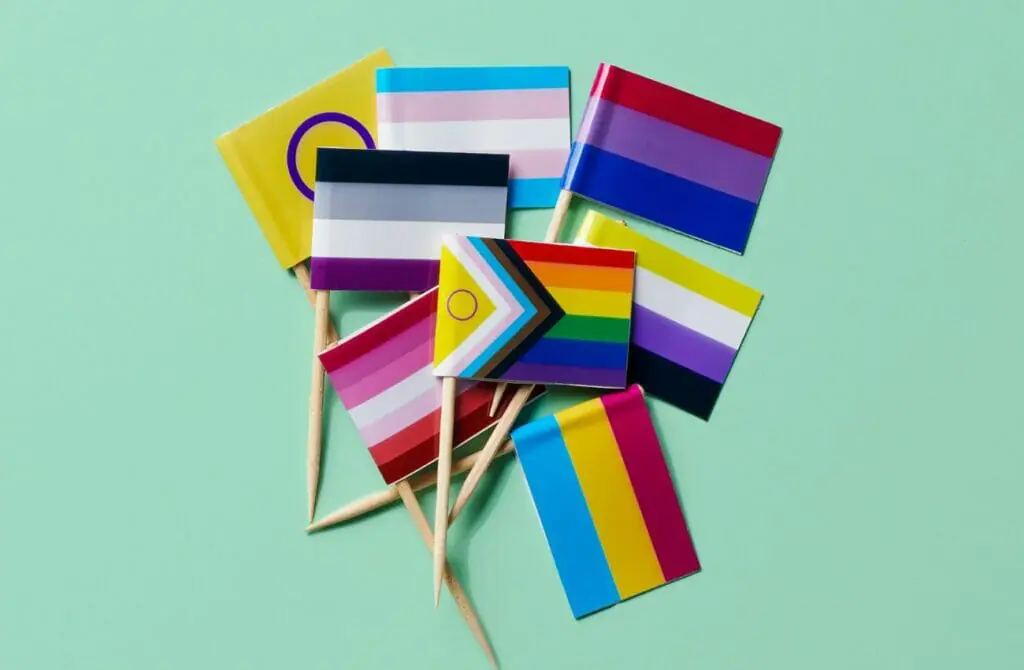
Trans Rights In Ethiopia
In Ethiopia, the rights of transgender individuals are quite limited, with the law criminalizing both male and female same-sex activity. Consequently, transgender individuals face discrimination, hostility, and significant legal challenges.
For local transgender residents, accessing healthcare, housing, and employment can be difficult due to the lack of legal protections and widespread social stigma. The consequences of this can be dire, as transgender individuals may face poverty, homelessness, and limited access to education and professional opportunities. It is important to recognize that situations can change rapidly, so it is always a good idea to stay informed and seek current information while residing or traveling in Ethiopia.
As a tourist visiting Ethiopia, it’s essential to be cautious and mindful of the possible risks to your safety. Due to the legal and social environment, it is vital for transgender visitors to avoid drawing attention to their identity. Be discreet and prioritize your personal safety at all times. Remaining vigilant and up-to-date with local news and events can significantly reduce the chances of encountering potentially dangerous situations.
To help build a support network and stay informed, consider connecting with local and international LGBT advocacy groups. These organizations can provide valuable advice and resources tailored to your specific needs. Some examples include The Rainbow-Ethiopia Health and Human Rights Initiative and regional offices of international organizations like Amnesty International and Human Rights Watch.
Remember, it’s crucial to err on the side of caution, stay vigilant, and always seek up-to-date advice about local conditions before traveling. By following these guidelines, you can have an enjoyable and safe experience while visiting Ethiopia.


The Future For The Queer Community In Ethiopia
As Ethiopia’s society evolves, there may be shifts in attitudes towards the LGBT community, which could bring changes to the lives of both locals and tourists. LGBT rights in Ethiopia have been a topic of controversy, with the community facing high levels of discrimination and threats of violence. However, there are steps that can be taken to protect individuals and promote a more inclusive atmosphere, both on a local and international level.
One approach to ensuring safety is for locals and tourists alike to network with reliable LGBT advocacy groups within the country. These organizations can provide individuals with up-to-date information and guidance on safe spaces to navigate amidst the current climate. Additionally, maintaining a sense of vigilance and being aware of surroundings is crucial for keeping oneself out of harm’s way.
As in any other country, there are bad actors that may pose dangers; thus, exercising caution is vital. Situations can change rapidly, and it is essential to always seek out the most recent information and advice before embarking on a journey.
In conclusion, while the future of LGBT rights in Ethiopia remains uncertain, there are measures that can be taken to ensure safety and promote inclusiveness for all. By staying informed and cautious, individuals can navigate the challenges presented by the cultural landscape and also find a sense of community and acceptance.
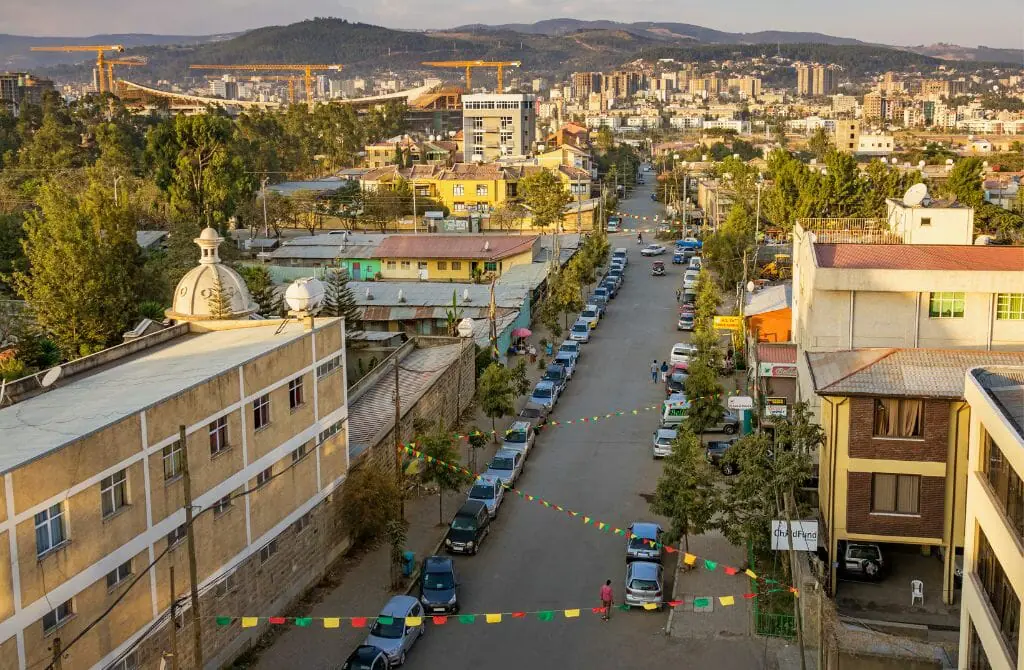
Protect Yourself While Travelling In Gay Ethiopia
When discussing LGBT rights in Ethiopia, it’s important to understand the different experiences of local people and tourists. Homosexuality is illegal in Ethiopia, with imprisonment as the punishment for engaging in same-sex sexual activity. There are no legal protections against discrimination for LGBT individuals in areas such as employment, housing, or adoption.
For tourists visiting Ethiopia, it is advisable to err on the side of caution and remain vigilant, as the situation regarding LGBT rights can change quickly. Additionally, understand that, like in any country, individuals may harbor hostile attitudes towards the LGBT community. It is always best to keep a low profile and avoid public displays of affection.
If you feel it is necessary, there are steps that you can take to protect yourself while in the country. Be cautious when using social media, particularly apps like TikTok, where members of the Ethiopian LGBTQ+ community have reported experiencing harassment and calls for violence against them.
Remember, information on the ground can become out of date quickly, so always seek up-to-date advice before traveling or engaging with locals regarding LGBT issues. Reach out to local or international LGBT advocacy groups, as they can provide the most accurate and current information on the situation in Ethiopia.
Some notable organizations that may provide assistance or information include the Ethiopian Human Rights Commission and international groups such as Sida and Equaldex. By staying informed and remaining cautious, you can help protect yourself and contribute to fostering greater understanding and acceptance for the LGBT community in Ethiopia.
